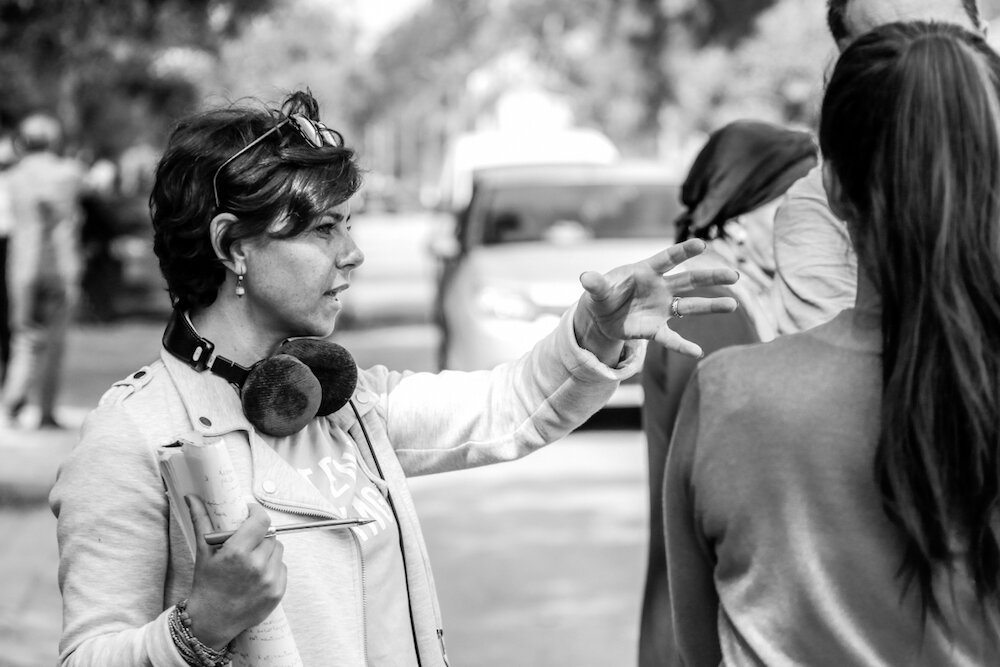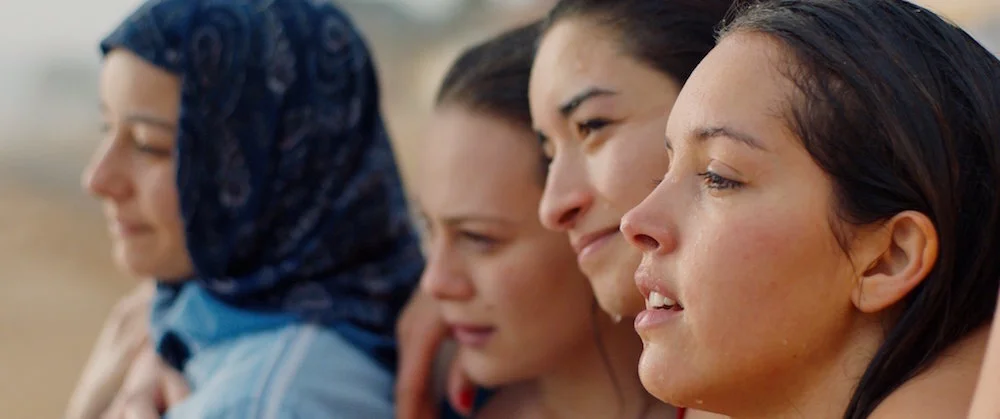I originally posted this on Thrive Global, on the 25th of May 2019 — from the Festival de Cannes.
‘Papicha’ is now streaming as part of the Virtual Cinema of Film at Lincoln Center, through June 4th. An act of courage if you read my piece!
I believe that if there were more women film critics, the business of cinema would be much different. There would be better films made, more communication between what audiences want and filmmakers create, and those projects which portray the truth of our humanity would receive the attention they deserve. 'Papicha' would be one of those projects. Now let me explain what I mean.
At the end of the screening of ‘Papicha’ in Cannes, I felt the urge to hug its filmmaker, the Algerian Mounia Meddour. Having met her in Doha earlier this year, during their annual Qumra film event, I knew that wouldn’t go over big with Meddour. The filmmaker’s passion and talent are well guarded behind her forceful posture. Yet I couldn’t help but feel that here was finally a cinematic heroine made just for me — beautiful, imperfect, angry and strong. And searching for that elusive “freedom” which Janis Joplin described best in her famous line: “Freedom’s just another word for nothin’ left to lose.”
In ‘Papicha’, which is Algerian slang for a “pretty, cool girl” the leading character Nedjima (played to perfection by the award winning Lyna Khoudri whom we’ll see in Wes Anderson’s next project) goes through hell and back, and yet ends up finding within herself the personal freedom she so needs to go on. Nedjima is a college student in Algeria in the early 90’s, a dark time in the history of the country when Islamists and the government were at odds. At a time when Algeria is once again in the news, the film hits a particularly important chord for our general collective. But that’s not why I wanted to hug its filmmaker.
With her college girlfriends, and after a tragic event hitting close to home and perpetuated by an Islamist woman, Nedjima decides to put together a fashion show, using the traditional veil — the “haik”. It is a simple, off-white silk/wool blend fabric measuring six meters by two. All her garments will be made of the haik, sewn and colored to become various cool outfits, as a kind of revolutionary act to the oppression of the black abayas and hijabs which are being imposed by the extremists.
At the core of Papicha’s actions, there is a deep love for her native Algeria, as well as an instinctual need to be free. I think there isn’t a woman who isn’t with her at this point in her story — just substitute “my country” for Algeria and you’re set.
But herein lie the problems for the acceptance of the film, because most of you reading this now will probably never have a chance to watch Meddour’s film. ‘Papicha’ will not be largely sold to far and wide territories and might not come to a theater near you because every film critic who reviewed it when it world premiered in Cannes’ “Un Certain Regard” section was a man. And they guaranteed thus that a film about such a revolutionary female heroine, one who dares to say no to the Western world and being saved by a man-slash-prince-on-a-white-horse will never see more than French and Algerian, inshallah, distribution. Shameful.
So here I was, a lone woman, finding it exactly the story I needed to watch during a particularly difficult Cannes for women. Because their beloved “50/50 by 2020” campaign shouldn’t just be about women filmmakers but also female journalists.
I caught up with the intelligent and powerful Meddour in Cannes for a quick interview.
Mounia Meddour directing on the set of ‘Papicha’
How did you come up with the story?
Mounia Meddour: ‘Papicha’ grew out of my own story, it’s autobiographical. I lived in Algeria in the 90’s, was studying journalism and worked on a small radio program. I lived in this university residence and I shared a room with five or six other girls. In those bedrooms we had all types of people. There were very serious students, others were really boring and some were into partying. Obviously it was really important for me to feed the storyline with contextual information and background about what was the situation at that time. As I come from a documentary background, it was important for me that those details were truthful.
What were the main difficulties in making this project?
Meddour: Many many difficulties. In general it was the production that took a long time and was difficult. The film is an Algerian, French, Belgian and Qatari co-production. As far as the Algerian side of the production, it was an important budget and more than what Algerians usually spend on a film. Because I wanted to have a good budget in order to work in good conditions and the film was expensive also because it was a period film. We had to redo the 90’s and had lot of actors and a lot of locations and that’s expensive. Plus the music [rights, since ‘Papicha’ features some cool 90’s songs familiar to all] and obviously when you are trying to make your first feature film and it’s an ambitious project it takes time. It was also quite difficult to find a film distributor, then the casting was also a long process because I needed to have characters that were really strong, both physically but also psychologically — to show the complexity of human nature.
I would say that the most difficult thing was the budget money.
What do Algerians think of this film? Is it a taboo what you talk about in the film?
Meddour: The film as I said was co-produced by Algeria so we went through a commission, the script was read, the film was also shot in Algeria so obviously we were well received by the authorities and the shoot went very well there. I film hasn’t been shown yet in France, nor in Algeria but we are going towards the announcement of the dates in France. This story of this period of time in Algeria has been shown a little, there were a couple of series that showed it, but there have been few feature films and even less made from the women’s viewpoint. And I think we really need that and a film showing a girl that is resisting during this period in time. And I also think for us, who were there, we need to transmit the story of this period to the young people in the streets now. And prevent them from making the same errors.
You say in the film that Algeria was like a huge waiting room, would you say the same is true now?
Meddour: Unfortunately yes, I think. Algeria is still a big waiting room. Then it was so obvious that everyone was waiting for something: waiting for medical care, waiting for passport, waiting for a call, waiting for a love story. Nothing was really moving, or if there was movement, it was so slow. The situation was blocked everywhere. I would say that the situation is no better today, due to economical problems. I think it is this kind of immobility or blockage that actually created the marches and protests of the young people. This new generation that feels like they are prevented from doing what they could do with all they had by this kind of extremely slow motion.
How are you like your leading character?
Meddour: Her story parallels what happened to me. I was forced to leave Algeria for family reasons and I felt really uprooted. When you leave with just a suitcase and have to abandon everything, we left with everything to reconstruct. You have to be able to make new friends, to adapt to another society, find a new way of speaking — you have to integrate. And it’s difficult really. Nedjima refuses. She’s not interested in that. She knows what she wants to do, she’s got her own purpose. And what I find interesting in fiction is to tell the stories of those strong women, about their life path and their assertiveness as well.
And redefine what a heroine is.
Have you ever wondered what you’d be doing if you had stayed in Algeria?
Meddour: This film would have never existed if I’d stayed in Algeria.
— Published on May 25, 2019


